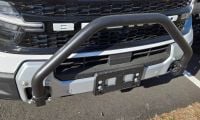We’ve all seen them. High mileage, and somewhat beat Honda Civics older than a precocious 10-year-old grade schooler selling for head-scratching high dollars. When I peruse used car Ads, or drop in on my car-hawking colleagues, searching for the perfect used Honda Civic with some possible up-market profit potential, yes, true-mileage does enter the equation. Yet, that’s not always the deciding factor when buying or selling a used Honda car, crossover, or SUV. The devil is often in the details and just begins with assessing odometer readings.
Sure, Honda Civic’s run a long time. But…
There’s a trend in the used car market that began sometime in mid-2016. Used car retail pricing is down trending, much to the delight of the entry-level, first time, and downsizing used car buyer. Compact, along with luxury cars and SUVs, took the biggest residual value hit in 2017. So, in a “buyer’s” market, buying strategy changes a bit. Sometimes a new Civic is cheaper in the long-run.
Here’s a tip or two for eliminating the dreaded buyer’s remorse, lemon-car drive off, and unanticipated gut-wrenching major repairs.
1. When buying a high mileage Honda Civic, insist on viewing service and repair records
A high mileage car does not always mean a worn-out problematic car. How many owners? Has the car been taken care off? Does the seller have service and repair records? And if you, the buyer, has any mechanical expertise, and know what you’re looking at -- may I look at the car on a rack? Or, may my mechanic check out the car?
2. Check for rust through, extensive suspension and tire wear
Depending on your region, that shiny used car may or may not have underbody, hood, or trunk, rust through. Yes, I’ve bought a car or two with minor rust. However, I adjusted the offering purchase price accordingly. For a temporary, short-term car, minor rust or abrasion will not always kill the deal -- but it will impact the future retail value of the car. Just because you bought it, doesn’t mean the next guy will.
As a safety precaution: Check suspension, shocks, tie rods, and ball joints for travel, play, wobble, and stutter-stops. These repairs can cost thousands. Don’t brush off your suspicions in lieu of a lower asking price -- it’s not worth it, unless you’re personally qualified to do the repairs. Remember, a set of tires and balancing can set you back 3 to 4 hundred dollars or more..
3. Interior cigarette smoke and mold
I’m guilty of assuming that I could detail long-term cigarette smoke, pot-haze, and mold out of my latest used SUV acquisition. Heck, I wanted it, so I bought it. Here we are, 2 months into the deal, and I’m still dealing with grandpa so and so’s cigarette smoke residual nicotine. No matter what someone tells you, do as you will. A car or truck that’s been smoked in for days, months, or years, will never be Dazey fresh. I don’t care what the price is. Fir get about it! Unless of course, you’re a smoker.
4. Consistent oil changes and service scheduling ads value to your used Honda Civic
We all get lazy from time to time in meeting our scheduled oil change timeline. The same can be said for periodic dealership servicing. However, a used car that’s been regularly serviced is worth more at time of resale.
The same can be said for proper tire inflation, rotation, and balancing. Even to that guy at the dealership that comes out and appraises your Civic for (below wholesale) trade-in value, will increase the value for a clean engine room, clean oil, transmission fluid, a tiddy, detailed interior, and tires in good or better condition. An exceptional visual condition will gain you points at the dealership.
5. Look to Kelly Blue Book, Edmunds Auto, and others, for true market value before buying
With today’s access to the internet, finding the true market value for your used Civic is easier than ever. Rather buying or selling, real-market-average-pricing is invaluable when setting expectations. True enough, a deal is a deal, when the numbers work for you. Yet a bit of research can eliminate much angst when it comes to buying or selling a used car or light truck.
The used car game is a twisty one: However, for those sellers who are willing to deal with the pros and cons of face to face public sales, I highly recommend attempting “for sale by owner.” If you have the time and don’t require your used car as a chit for a pending new car trade-in, you will most likely realize a far greater residual value return on the sale of your used car by doing it yourself. On-line’s cool, newspaper Ads can be safer. For buyers: “Buyer beware.” There’s no “cooling off” period when buying a car from a private party. However, with some due diligence, you too can benefit from a private sale.
For those looking for a short-term warranty or “easy financing”
Buying a used car or truck from a car dealer can be a pleasant-enough experience if you do your homework. I’m fortunate to know some honest car dealers. But truthfully, safety check as they may, used is used! It’s up to you the consumer to walk into a car dealer with your eyes wide open. We’ve all experienced that questionable car deal at one time or another. However, for those wishing to finance a used car, or secure a limited used car warranty, a reputable car dealership may be your best bet. Negotiate! You’re holding the checkbook. You will find current used Honda Civic values here.
Set Torque News as Preferred Source on Google











